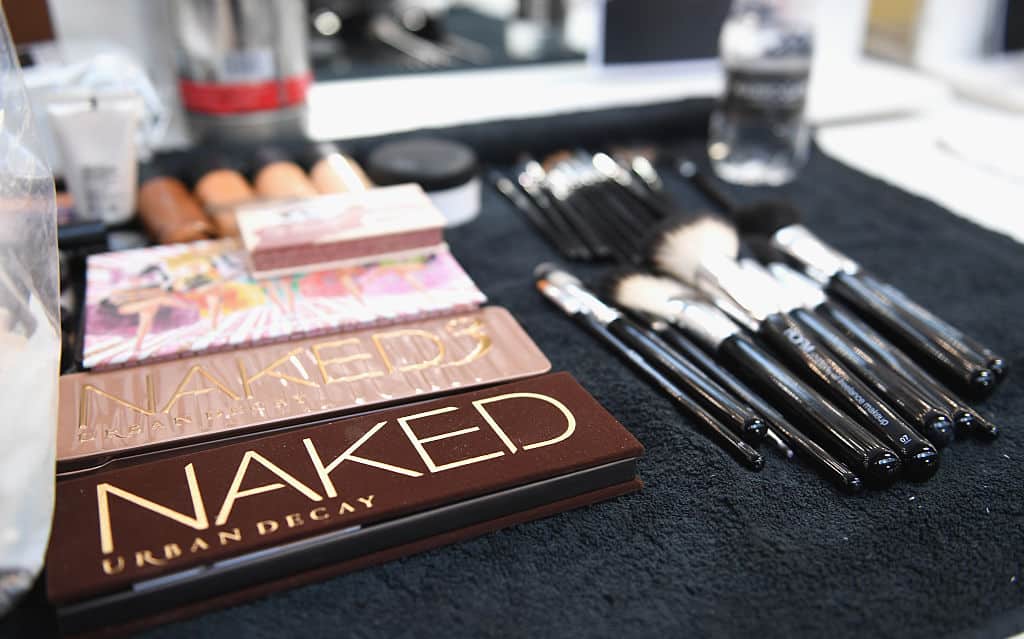Toxic Forever Chemicals Still Found in UK Cosmetics

 Why you can trust us
Why you can trust us
Founded in 2005 as an Ohio-based environmental newspaper, EcoWatch is a digital platform dedicated to publishing quality, science-based content on environmental issues, causes, and solutions.
Toxic forever chemicals are still being used in UK cosmetics, an investigation from BBC News published Friday revealed.
Through a Freedom of Information request, BBC News learned that the brands Revolution, Inglot and Urban Decay – which is owned by L’Oréal – are still selling dozens of products that contain the environmental toxins known as PFAS (poly- and perfluoroalkyl substances).
“Consumers should be concerned about low-level contamination in products because of the limited information on the long-term toxic effects,” Toronto University environmental chemist Professor Miriam Diamond said, according to a summary of her remarks provided by BBC News.
PFAS are a class of chemicals that have been used in non-stick, stain- or water-resistant products since the 1940s, according to the Independent. They have been used in cosmetics and makeup to make the products water resistant and easier to apply, according to the UK’s Cosmetic, Toiletry and Perfumery Association (CTPA).
“For example, water and oil resistance can create long-lasting skincare and make-up products which are more comfortable to wear,” CTPA added. “These properties can also give a smooth high-gloss finish and frizz protection to hair fibres.”
However, there is growing concern about the use of PFAs in beauty and other industries because they have been linked to various health impacts including cancer, reproductive and developmental problems, immune suppression and cholesterol problems, according to the Environmental Protection Agency (EPA). They also do not break down in the environment, and have been found everywhere from drinking water to rain water to human blood. There are concerns that this widespread contamination could harm non-human animals as well, such as when they evade wastewater treatment plants and pollute rivers.
“Some PFAS have already been linked to health impacts in marine animals such as reduced immune, liver, blood and kidney function in bottlenose dolphins or thyroid hormone disruption in marine birds, and it’s likely only a matter of time for other health impacts to be recognised,” Marine Conservation Society chemicals policy manager Dr. Francesca Bevan told BBC News.
As concerns mount, so have attempts to regulate the chemicals. The U.S. EPA set new safety guidelines in drinking water for two of the most common PFAS last year and proposed listing them as hazardous substances under the Superfund law.. And the same day the BBC investigation was published, Denmark, Germany, the Netherlands, Norway and Sweden sent a proposal to the European Chemicals Agency to restrict PFAS.
The investigation was thanks to the UK’s efforts to learn more about the chemicals and their impacts via an Environment Agency review of the use of PFAS in the UK, BBC News explained.
As part of the review, CPTA told the agency that nine PFAS were still used by the industry, but their names did not make it into the final report. The BBC then obtained those names through a Freedom of Information request and checked them against the ingredients lists of popular UK cosmetics.
The investigation revealed that the PFAS PTFE and Polyperfluoromethylisopropyl Ether were present in numerous products, including
- Relove High Key Shadow Palette
- Revolution Power Shadow Palette 90’S Baby
- I Heart Revolution Mini Match Palette Fried Egg Fred
- Urban Decay NAKED Palettes 2
- Urban Decay NAKED Palettes 3
- Urban Decay Smoked Palette
- Inglot X Maura Beautiful Storm Eyeshadow Palette
- Inglot Evening Kiss Eyeshadow Palette
- Inglot Complexion Perfection Essentials Palette Deep
In response, L’Oréal told BBC News that it had decided to phase out PFAS in 2018.
“The phase out and substitution plans are well underway and we have already removed PFASs from the majority of our products,” a spokesperson said.
Both Revolution Beauty and Inglot emphasized that PFAS were legal in the UK and EU, but Revolution Beauty said it was phasing out the chemicals and Inglot said it was researching the possibility of doing so.
“Only 1.5% of CTPA member companies reported use of PFAS ingredients when surveyed in 2020,” CPTA Director General Dr. Emma Meredith said in a statement posted on the CPTA website. “Cosmetic scientists have developed innovative alternatives that offer people the same product benefits they value. CTPA is working closely with Government as it shapes an action plan on PFAS for the UK. We welcome all new scientific studies into this large group of substances because these will contribute to a science-led and risk-based approach to the use of PFAS by all industries in the future.”
In May of 2022, a group of more than 30 non-governmental organizations called on the UK government to ban all non-essential PFAs.
“The only way to effectively prevent PFAS pollution in the UK environment, and to protect future generations from the impact of the most persistent human-made chemicals known to date, is to implement an urgent and timelined phase-out of all unnecessary uses of all PFAS,” the letter read.
The first step in regulating PFAS in the UK is a report on their health impacts from the Health and Safety Executive, which should be published shortly, according to BBC News.
Subscribe to get exclusive updates in our daily newsletter!
By signing up, you agree to the Terms of Use and Privacy Policy & to receive electronic communications from EcoWatch Media Group, which may include marketing promotions, advertisements and sponsored content.

 233k
233k  41k
41k  Subscribe
Subscribe 




